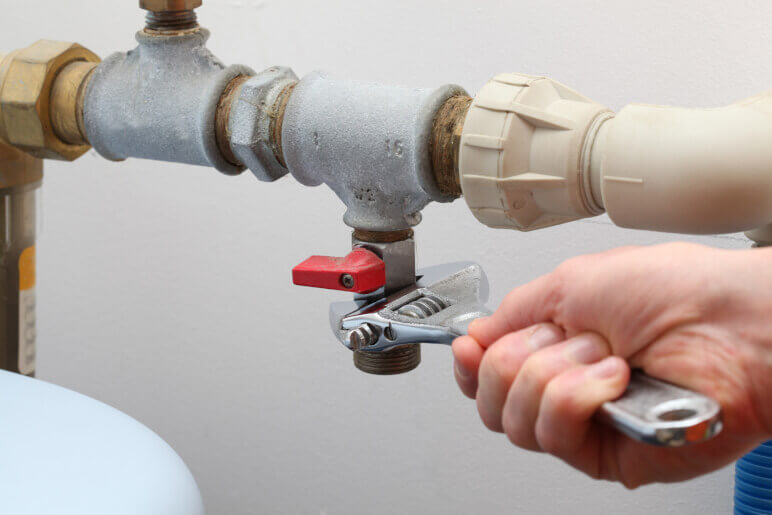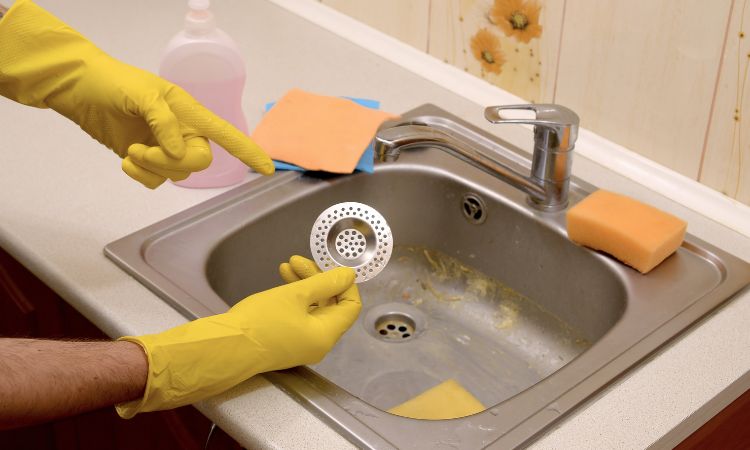Bathroom Plumbing Essentials: What Every New Homeowner Needs to Know
Bathroom Plumbing Essentials: What Every New Homeowner Needs to Know
Blog Article
Are you currently in search of advise around Plumbing Tips for New Homeowners?

For brand-new home owners, understanding and keeping bathroom plumbing can save both time and money by avoiding expensive problems down the line. Here are some important restroom pipes ideas to assist you maintain whatever running efficiently.
Acquaint Yourself with the Key Shut-Off Shutoff
Recognizing where the major water shut-off shutoff lies in your home is essential. This allows you to rapidly turn off the supply of water in case of major leaks or during plumbing emergencies, preventing extensive water damage.
Regularly Inspect for Leakages
Tiny leakages can lead to huge issues. Frequently check under sinks, around commodes, and near plumbing fixtures for any indicators of leaks. Search for dampness, small drips, or corrosion. Capturing and fixing leakages early can protect against more major damage and conserve water.
Do Not Overlook Slow Drains
If your sink or tub is draining pipes slowly, it's often an indicator of a clog forming. Addressing this early can prevent a full obstruction. Make use of a bettor or a plumbing professional's snake to clean out debris. Stay clear of utilizing chemical drainpipe cleaners as they can damage your pipelines in time.
Know What Not to Flush
Commodes are not waste disposal unit. Avoid flushing anything apart from toilet tissue and human waste. Products like wipes, feminine health products, and cotton swabs ought to be thrown away in the garbage to avoid obstructions and drain backups.
Set Up Strainers in Drains
Area strainers in your sink and tub drains pipes to capture hair and other debris before they enter your plumbing system. Cleansing the strainers on a regular basis will help avoid accumulation and keep water moving easily.
Preserve Your Hot Water Heater
Guarantee your water heater is readied to a suitable temperature (commonly around 120 levels Fahrenheit) to avoid hot and decrease energy usage. Flush the container each year to get rid of sediment buildup, which can minimize the efficiency and life expectancy of your heater.
Update Your Components
If your home has older fixtures, take into consideration updating to more effective versions. Modern commodes, showerheads, and taps are created to use much less water while supplying great stress, which can considerably minimize your water expense and environmental footprint.
Beware with Do It Yourself Pipes Services
While it's alluring to deal with all home repair work by yourself, beware with plumbing. Some concerns may need specialist knowledge, particularly if they involve main water lines or drain repair services. Employing a specialist can sometimes be more affordable than do it yourself, specifically if it avoids more damages.
Get Ready For Cold Weather
Protect your pipes from cold throughout cold weather by shielding pipelines in unheated areas like cellars, attic rooms, and garages. Throughout extreme chilly, let cold water drip from taps offered by exposed pipes to help stop cold.
Schedule Regular Upkeep
Consider organizing yearly inspections with a certified plumbing. They can find issues that you might miss out on, such as concealed leakages or deterioration on pipelines and components. Regular maintenance aids extend the life of your pipes system and can protect against emergency situations.
Final thought
Comprehending and maintaining your home's washroom pipes can stop lots of common concerns. By adhering to these vital suggestions, you can ensure your washroom remains useful and efficient, conserving you money and time over time.
5 Plumbing Tips for First-Time Homeowners
Know How to Shut Off the Water
In most homes, the water can be shut off at two places: at the appliance or fixture itself, and for the whole house. For instance, look under your sink or behind the toilet. See those little knobs that connect with the pipes? Those are the shut off valves for those fixtures. Simply turn them until the water is off. The main shut off valve (which controls water throughout your entire home) will be outside, where the water feeds into the structure. You might need a dedicated tool, such as a water shut-off key, to shut off the water at the main.
Build an Emergency Plumbing Kit
Everyone knows how important it is to have a high-quality plunger around the house. But there are other things that can help you out when issues arise with the pipes. Building an emergency plumbing kit to solve issues on your own is part of any list of basic plumbing tips. Consider adding these things to create a basic plumbing kit:
Adjustable wrench Tongue-and-groove pliers Screwdrivers Plumber’s tape Pipe sealant Duct tape Set of hex keys Clip light for working under cabinets Auger and hand snake Do a Little Research
Many small leaks can be handled by replacing a small part of the piping system, tightening part of a faucet, or even changing out an aerator. Take the time to browse how-to articles for common plumbing problems, such as a running toilet or slow-draining sink. You might be surprised to find how easy it can be to do simple things yourself, like replace a valve in the back of the toilet.
Keep it Simple With No Chemicals
If you have a clog, you might be tempted by the promises of liquid drain cleaner. While this might work at first, it actually causes more damage deep in the pipes, eventually creating even more problems down the road.
Instead, try using baking soda and vinegar to create a strong fizzing effect that can help break up clogs and clear gunk from drains. Follow it with boiling water to clean the pipes even more thoroughly.
Take Care of Your Garbage Disposal
Be cautious about what you put down the disposal. Avoid pouring in fats, oils, and grease, as these are a surefire way to get a clog. Beware of certain foods too, such as celery or bones, as they can lodge in the works. Always run the disposal with water flowing.
https://modernize.com/homeowner-resources/other/10-plumbing-tips-for-first-time-homeowners

View Report this page